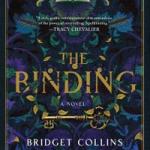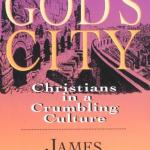As mentioned in my initial post on The Binding by Bridget Collins, it is a well-written book with an interesting hook. Again, the premise is that in this world, “binders” take people’s memories and turn them into books. The more noble and honest binders then secure the books in a safe place so that they don’t get destroyed (in which case the memories return to the person) or read by others. The less scrupulous binders will let other people read or even buy these private memories.
With even that cursory description of the world, I’m sure we can see where the plot is going. What happens when someone gives up something they shouldn’t? They don’t even necessarily know they’ve lost it, and yet it’s now gone forever (or until the book is destroyed and the memory is recovered). In this case, Emmett Farmer and Lucian Darnay have “bound” their memories of their love for each other, and so are on the way to lives without each other–Emmett under an immoral employer and Lucian into a loveless marriage. In some sense, the plot kind-of writes itself and this book could easily have been lazily done schlock. Instead, Collins has written a book that carries itself along pretty darn well. If The Binding is someone’s memory, it is at least the memory of an interesting and competent person.
The previous post (linked above) has already provided a few brief reflections on the homosexual relationship in this book, so I’m not going to go into any more detail here. Suffice it to say I hold to the same sexual ethic that Christians have held for the past two millennia. I can appreciate that this book is well-written and tells an interesting story in an interesting world; but I can also say that the relationship in question is one which ought not be emulated or praised here in the real world.
What I do want to briefly mention is the treatment of memory. Although it’s not something we’re likely to read about in the latest Evangelical best-sellers, Augustine gave memory a place of great importance in his Confessions. Specifically, he tells us that memory is the human characteristic that binds us together as individuals over the course of our lives. That is, the connection between the part of us that exists now and the part of us that existed five years ago, or ten years ago, or when we were four, or whenever. I am who I was then because who I was then exists in my memory.
Of course, human memory is fallible. We forget things, we remember things that never happened, or which did happen (but not in the way we remember). And that is just in the normal course of human events, without accounting for terrible diseases like Alzheimer’s. This is why from his discussion of memory Augustine immediately turns to God. Where our memories are deeply flawed–even fallen, God is full and perfect and lasting. Our memories fail, but God holds securely to His creation forever. It’s as if there were a book with our whole persons written into it protected for eternity.
So read The Binding as a useful reflection on memory, its role in our lives, and how it highlights God’s faithfulness in preserving us even when we find ourselves to be sinful, fallible, and fleeting.
Dr. Coyle Neal is co-host of the City of Man Podcast and an Associate Professor of Political Science at Southwest Baptist University in Bolivar, MO













